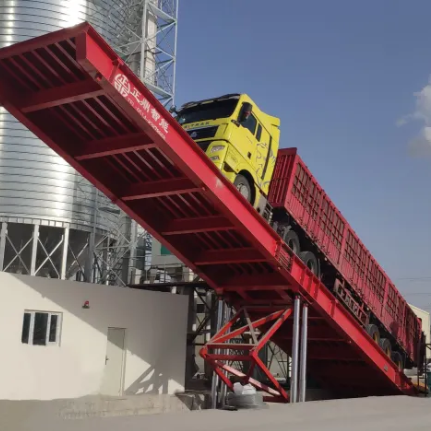Importance of Regular Hydraulic System Maintenance
Ensuring Operational Efficiency and Safety
Maintenance plays a huge role when it comes to keeping hydraulic systems running smoothly in those big dumper trucks. When operators make sure these systems get regular checks and servicing, they stay performing at their best level, something that really matters if we want to cut down on downtime and boost overall productivity across the board. Let's face it, trucks that break down less mean operations run much smoother without all those interruptions. Plus, good maintenance work cuts down on accident risks from failing systems, so everyone stays safer including both drivers and workers nearby who might be handling materials or doing inspections. Take a look at what actually happens in practice too statistics indicate that businesses sticking to proper maintenance routines for their hydraulic equipment see improvements in operational efficiency reaching as high as 30 percent. These numbers highlight why investing time into maintaining hydraulic systems makes sense for anyone concerned about workplace safety while still wanting maximum efficiency out of their fleet.
Cost Benefits of Proactive Maintenance
Regular maintenance for hydraulic systems goes beyond keeping things running smoothly and staying safe. It actually saves money in the long run too. When companies stick to their maintenance schedules, they spend less on repairs down the road and get more life out of their equipment. Some businesses report cutting maintenance costs by around 25% when they switch from fixing problems as they happen to catching them early through scheduled checks. Small issues like worn seals or leaking valves tend to snowball into major breakdowns if ignored. We've seen plenty of cases where a few dollars spent on routine checks saved thousands later when equipment failed completely. Looking at the numbers makes one thing clear: having a solid maintenance plan isn't just good practice, it's essential for avoiding those surprise repair bills that can really hurt the bottom line.
Routine Inspection and Fluid Management
Daily Visual Checks for Leaks and Damage
Regular checks each day help spot leaks in dumper truck hydraulic systems before they become big problems. When doing these inspections, operators need to keep an eye out for any fluid buildup, especially near those hoses, connections, and sealing points. These spots tend to be where small leaks begin, and ignoring them just leads to bigger headaches down the road. Setting up a consistent inspection schedule makes sense because it cuts down on surprise breakdowns that nobody wants. The result? Fewer interruptions in work flow and overall better performance from the equipment without all those unplanned stoppages messing things up.
Weekly Hydraulic Fluid Level Assessments
Checking hydraulic fluid levels on a weekly basis really matters if we want our systems running at their best. Most engineers will tell us to stick close to what the manufacturer says about proper fluid levels because going below those marks puts extra stress on components that can eventually fail. When there's not enough fluid in the system, things start getting hot or making weird noises - clear warning signs that something needs attention. These regular inspections do more than just stop problems before they happen. They actually extend how long the whole hydraulic setup lasts while keeping everything working efficiently. For dump trucks specifically, this kind of maintenance makes all the difference between smooth operations day after day versus unexpected breakdowns when least convenient.
Contamination Prevention and Fluid Replacement
Keeping hydraulic systems free from contamination matters a lot if we want them to last longer and work reliably over time. When contaminants get into these systems, they really cut down on efficiency and cause extra wear and tear on all those moving parts inside. That's why most experts recommend changing out the hydraulic fluid according to what the manufacturer says in their manuals. Regular oil changes keep things running smoothly through the system. Research indicates that clean fluids can actually cut down on component wear by around half compared to dirty ones. Sticking to a regular fluid change schedule makes sense for anyone who wants their hydraulic systems performing at their best day after day, especially when talking about heavy machinery like dump trucks where downtime costs money.
Lubrication and Component Care
Key Lubrication Points in Hydraulic Systems
Proper lubrication makes all the difference when it comes to keeping hydraulic systems running efficiently. Hydraulic cylinders, pumps, and motors are the main spots where lubricants really matter for smooth operation. Good lubrication cuts down on friction between moving parts, which helps extend how long these components last before needing replacement. Maintenance teams often miss spots during routine checks, leading to unnecessary wear and tear over time. When deciding when to apply lubricants, operators need to consider things like how heavily the equipment gets used daily, what shape the parts are actually in, and whether there's dust or moisture affecting performance. A well thought out lubrication plan not only saves money in the long run but also keeps hydraulic systems performing at their best without unexpected breakdowns disrupting operations.
Best Practices for Greasing Moving Parts
Getting the greasing right means picking out the right kind of grease for each moving part and applying it correctly. Maintenance calendars need to show exactly when to grease different components, something that changes based on where the equipment operates and how much it gets used day to day. When people forget to grease those parts properly, metal starts wearing down faster than normal, and before long there's expensive damage to fix. A good greasing routine works wonders though. Just make sure not to overdo it or underdo it either, check those greased areas regularly too. Stick with this method and machines run smoother for longer periods between breakdowns, saving money on replacements while keeping everything running at peak efficiency through thick and thin.
Troubleshooting and Preventative Measures
Keeping hydraulic systems running smoothly requires knowing what goes wrong and taking steps to stop problems before they happen. Most issues come from things like leaking hoses, worn out seals, or pumps that just aren't working right anymore. These kinds of problems end up costing companies tons of money in repairs if left unchecked. Training operators to notice when something sounds off or when pressure levels start acting strange makes all the difference. Getting in there early means fixing small issues before they turn into complete system failures. Industry stats back this up too – shops that troubleshoot effectively cut down their downtime by around 35-40%, which adds up to real savings over time for maintenance budgets.
Seasonal Maintenance Adjustments are essential since changing weather conditions can impact hydraulic system performance. During colder months, it is crucial to check for gelled fluids and ensure all components are prepared for low temperatures. Implementing seasonal checks enhances efficiency and helps prevent weather-related failures.
Deciding when to call in the pros matters just as much as regular upkeep when it comes to keeping hydraulic systems running smooth. Most everyday fixes get handled during normal maintenance checks, but some nagging problems won't go away without someone who really knows what they're doing looking at them closely. The folks in the field generally agree that bringing on outside experts makes sense for those tricky situations where time and money are both important factors. These specialists bring something extra to the table that goes way beyond just fixing what's broken right now. They help make sure everything works better than before, which means fewer headaches down the road and systems performing at their peak level most of the time.
FAQ
Why is regular maintenance of hydraulic systems important?
Regular maintenance keeps hydraulic systems functioning efficiently, reduces downtime, enhances safety, and prolongs equipment lifespan.
How can proactive maintenance save costs?
Proactive maintenance prevents major failures, reduces repair costs, and extends the lifespan of equipment, thereby saving costs over time.
What are the common signs of hydraulic fluid leaks?
Common signs include fluid accumulation around hoses, fittings, and seals, along with indicators like overheating or excessive noise.
Why is lubrication crucial in hydraulic systems?
Lubrication reduces friction, prolongs component life, and maintains efficient system performance.
When should professional assistance be sought for hydraulic system issues?
If routine maintenance doesnât resolve issues or persistent problems occur, it is advisable to seek professional help for in-depth solutions.

